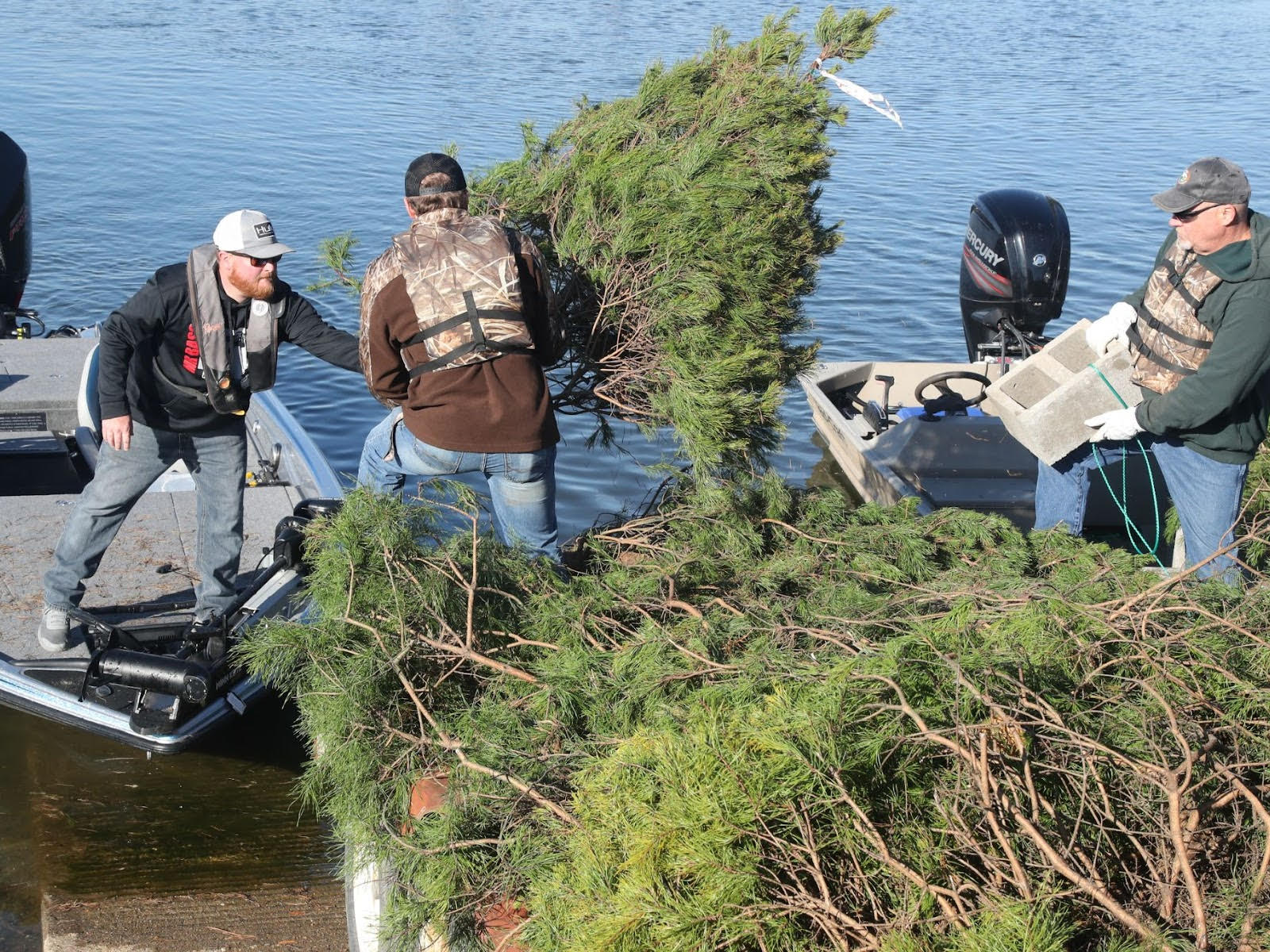Early deer hunt offers new opportunity for bowhunters
ON 09-03-2024
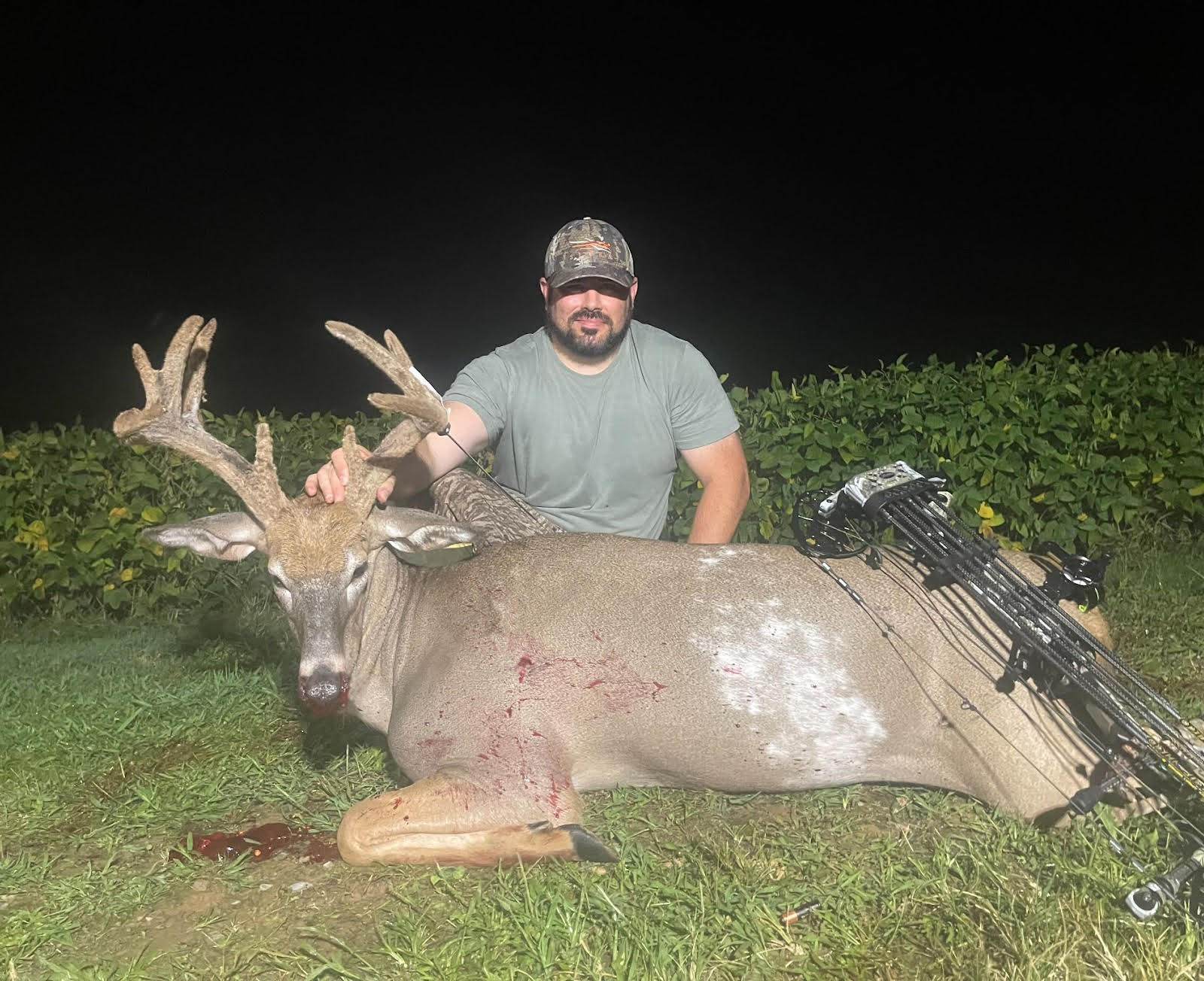
LITTLE ROCK — Arkansas hunters will be able to hunt many private and public properties for deer earlier this year than anytime since the AGFC was established in 1915, thanks to a new buck-only archery season scheduled Sept. 7-9.
For the last two decades, bowhunters participating in special urban archery hunts were able to climb a tree to start their season on Sept. 1 to help control deer herds in a few locations around the state, but this year’s early hunt is the first designed specifically to enhance the hunting experience by offering the ability to harvest a buck “in velvet.”
Each winter, bucks shed their antlers as testosterone levels decrease following their annual mating season (known as the rut). Beginning each spring, they begin to regrow a new set of antlers, which are covered in a soft, velvety coating to protect the antler tissue until it hardens into bone. By mid-September, most bucks will rub the velvet loose on the base of small trees, exposing the rack they’ll be sporting through the upcoming rut. For some hunters, chasing deer in velvet is an added challenge and opportunity to enjoy their passion, but until this year it was an opportunity rarely realized.
“Years ago, deer season opened on Sept. 15 for one season and I was able to get a deer in velvet then,” Bill Jones, AGFC commissioner from Pine Bluff, said. “I’ve taken deer in a few other states during velvet seasons and those really have added some excitement to my hunts. As a Commission, we’re really wanting to open up more opportunities for Arkansans.”
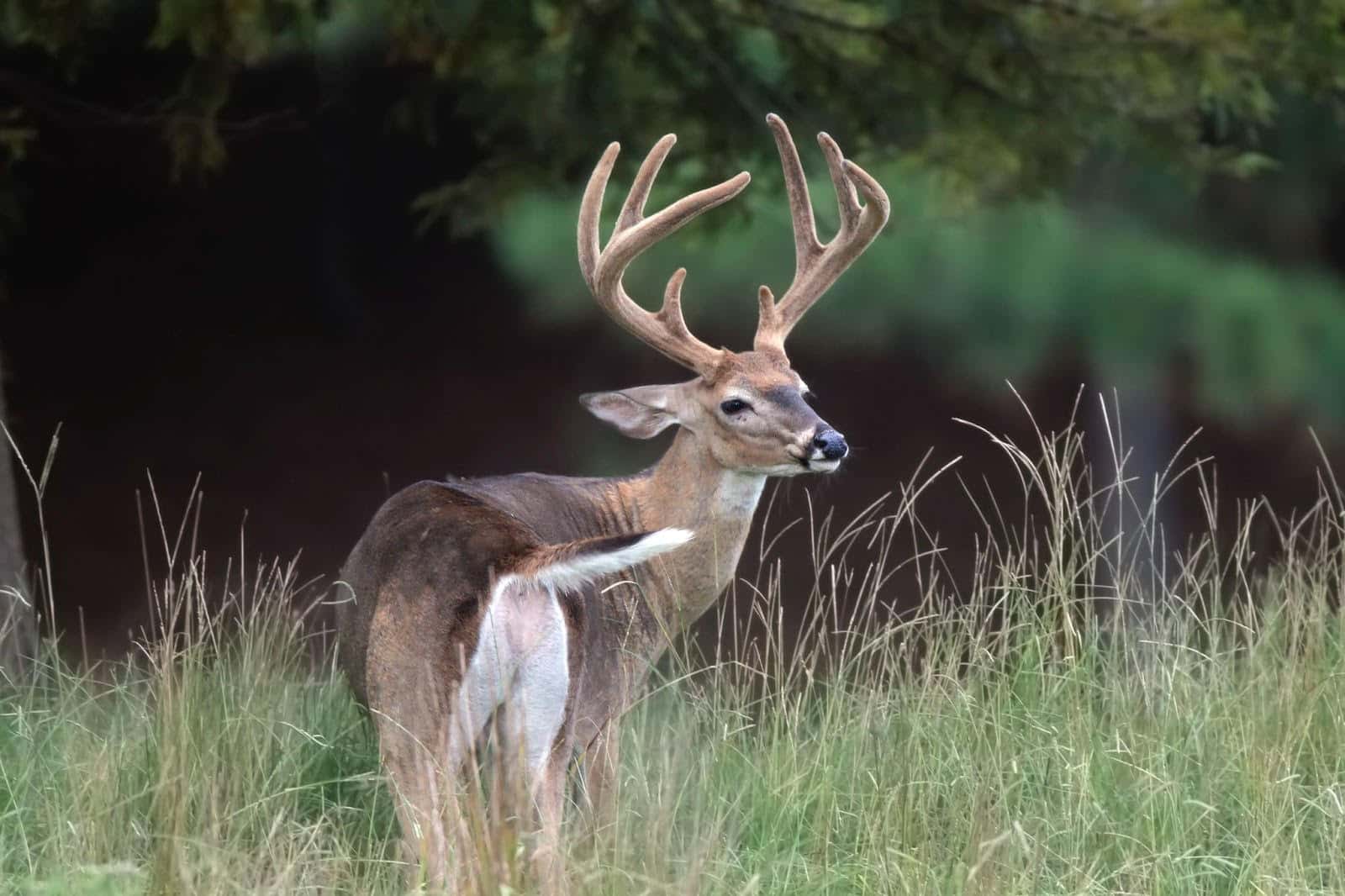
No Girls Allowed
We’re talking about the deer here. Women are just as welcome to join in the hunt. (In fact, women are the fastest-growing segment of the hunting community).
“Bucks only,” is the first rule of the new archery hunt. Unlike urban hunts where the goal was population control, the new buck-only bowhunt is about increasing opportunity and generating some early excitement for hunting season. During the hunt, all hunters may take one legal buck, whether it is still in velvet or not. This buck counts against the hunter’s seasonal bag limit, so those fortunate enough to fill a tag only have one buck remaining in their statewide limit.
License Check
Before heading to the field, it’s always smart to make sure you have your licenses in order. Any valid license that includes a deer tag is legal for the early buck hunt.
For anyone planning to check their deer through the AGFC app or online system, it’s also important to make sure the deer tags for your license are activated. Simply log into the system on the app or at agfc.com and check your account. If deer tags are present, you’re ready to go.
Kyle Curry, assistant chief of Information Technology at the AGFC, said the smartphone app has been improved for this year to help check deer, even if you don’t have a signal.
“It’s just always smart to check that app the night before going out to make sure your tags and licenses all show up,” Curry said. “If you check your deer outside of signal range, it will record it on the phone, but you need to make sure to open the app once you’re back in town and let the phone update the check. It will do it automatically, but you need to open the app for a few minutes to ensure it has time to send the data.”

Where to Go
The special early buck hunt is only available on private land, AGFC-owned WMAs and AGFC WMAs listed as Leased Lands WMAs in the 2024-25 Arkansas Hunting Guidebook. Many WMAs cooperatively managed by the AGFC but owned by other entities, such as the USDA Forest Service and U.S. Corps of Engineers, are off-limits during the hunt, as are federal wildlife refuges in Arkansas. Additionally, any WMA that had a stipulation where you had to harvest and check a doe before you were eligible to harvest a buck will be off-limits to the early season hunt to maintain the integrity of the “earn a buck” rule on those areas.
“The best bet is to double-check the back of the guidebook in the WMA listings,” Matt Warriner, AGFC assistant chief of wildlife management, said. “If you don’t see the early buck hunt listed at that WMA, it’s not open.”
Prep for Success
Archery is a low-odds game when it comes to success, but you still need to take a few extra precautions in the event that you manage to take a deer during the early hunt. Have a plan that gets the deer’s meat cooled as quickly as possible, even if that means bringing a cooler of ice and a mobile skinning rack in the truck.
It’s also important to have a plan to preserve the velvet on the deer’s antlers if you are planning to have the deer mounted. According to Cary Copeland of Wildlife Illusions Taxidermy and Processing of Jacksonville, even touching the velvet can damage it.
“I know the first thing everyone wants to do is go over and pick up that deer by the antlers, but that’s a major mistake,” Copeland said. “Oils in your skin can degrade the velvet, so you need to avoid handling the antlers at all costs. That velvet has shrunk up and is about ready to fall off. Handling and pulling on it will tear the velvet loose,” Copeland said. “The best way to pick the deer up is by the bottom of the chin and back of the head. Do whatever you can to avoid that rack from rubbing against things.”
Copeland said a product called Velvalock also will help the velvet stay on until you reach the taxidermist.
“It’s a spray bottle that you use as soon as you get your deer that helps the velvet stay on,” Copeland said. “If the velvet comes off, there’s no sense in trying to save it. But we have ways to add velvet at the shop for the mount.”
Col. Brad Young, chief of AGFC enforcement, has taken multiple deer hunting trips during other states’ early seasons and has used the Velvalock product to help preserve the antlers as well.
“You also really want to keep from bumping those antlers or letting them rub against anything on the haul out,” Young said. “On private land, you can load the deer carefully on an ATV and put a blanket or something between the antlers and the rack of the ATV or side-by-side. On public land, a deer cart is an absolute must to prevent dragging off the velvet. Position the deer’s head up and strap him in well for the ride.”
The use of a nonplastic game bag over the antlers also can protect the velvet and prevent flies from laying eggs in it until you get the deer to a taxidermist.
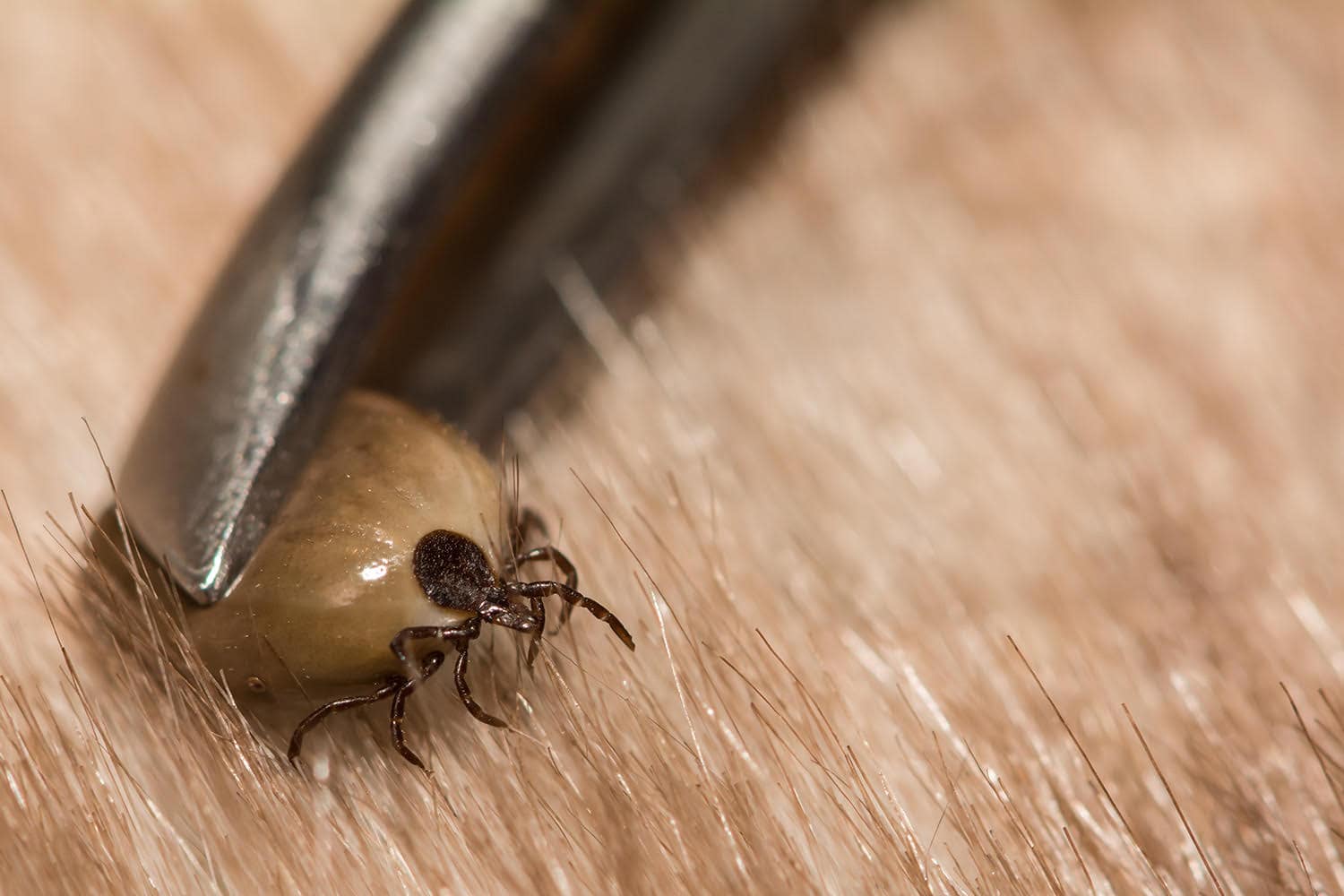
Bug Off
Hunting on an Arkansas summer day can be a bit muggy and buggy for hunters who aren’t ready for the weather. Mosquitoes, ticks and chiggers will likely be in full force during the early season, so a little precaution can save you from some discomfort and tick-borne illnesses such as Lyme disease and Alpha-gal syndrome (a nasty reaction to a tick bite that makes the victim allergic to red meat). Be sure to bring along a can of DEET-based insect repellent to help keep the biting bugs at bay. Permethrin sprayed on clothes also is very handy to prevent insects from lighting on you during the hunt. A Thermacell is another piece of modern technology anyone planning to sit for hours in the woods should invest in. Once the unit’s repellent pad is activated, you will experience a relatively bug-free hunt so long as you stay in one place and let the little wonder do its work.
####
CUTLINES:
HUNTER WITH BUCK
Col. Brad Young of the AGFC Enforcement Division with a trophy velvet deer he harvested during an early hunt in another state. Photo courtesy of Brad Young.
BUCK IN FIELD
Deer can be in velvet or have hardened bone antlers to be legal for the early buck only deer hunt. Photo by Mike Wintroath.
SCREENSHOT
Checking deer on the AGFC app can be done outside of cell signal, but be sure to open it up to complete your check once you’re back in range.
TICK
Ticks, chiggers and mosquitoes are a reality of early season hunting, but with some precautions, they can be limited to harmless nuisances. Photo by Bigstock.
Recent News
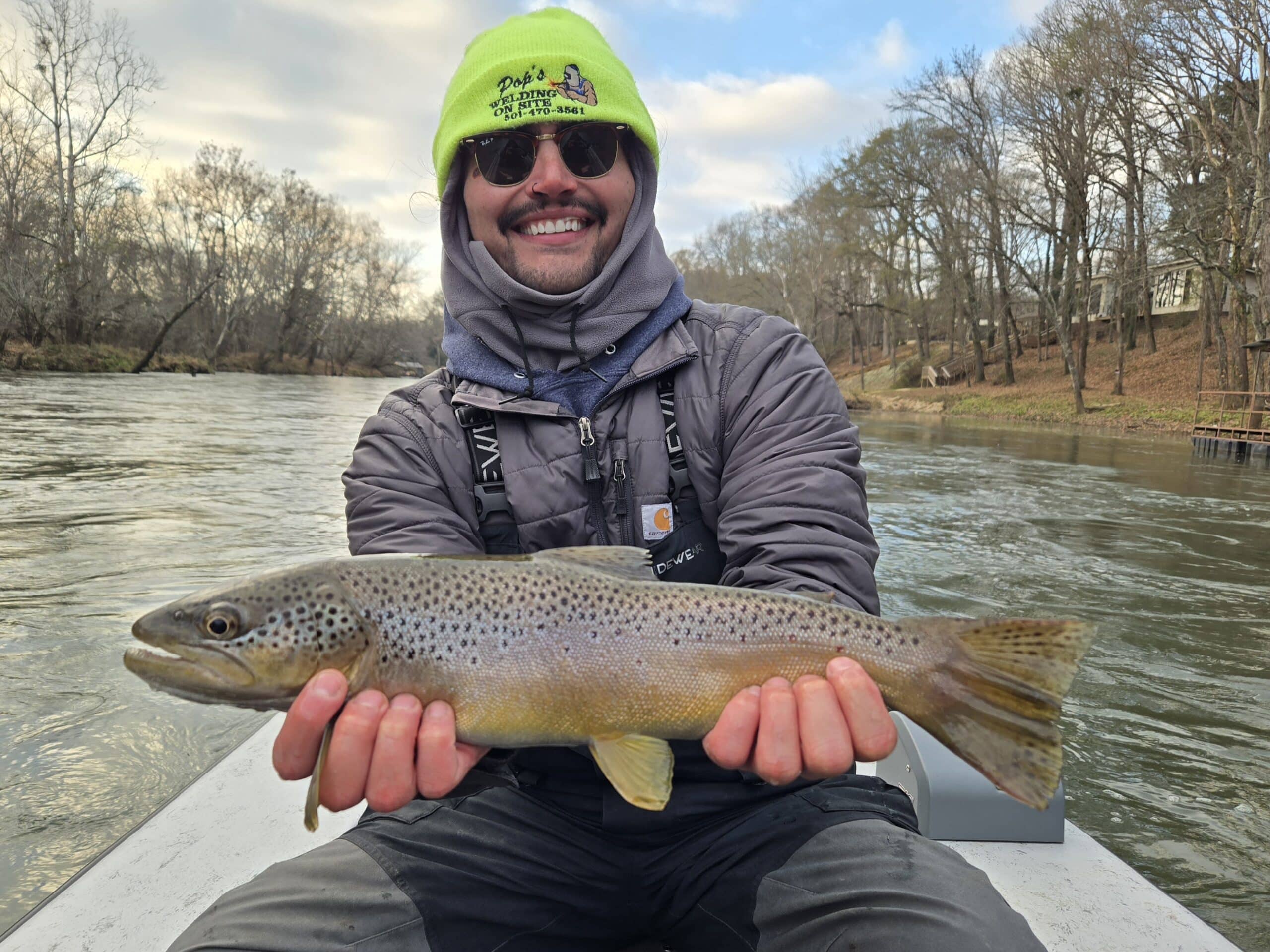
Arkansas Wildlife Weekly Fishing Report
Dec. 18, 2025
Subscribe to Our Weekly Newsletter E-mails
Don’t miss another issue. Sign up now to receive the AGFC Wildlife Weekly Newsletter in your mailbox every Wednesday afternoon (Waterfowl Reports are published weekly during waterfowl season and periodically outside the season). Fishing Reports arrive on Thursdays. Fill in the following fields and hit submit. Thanks, and welcome!

